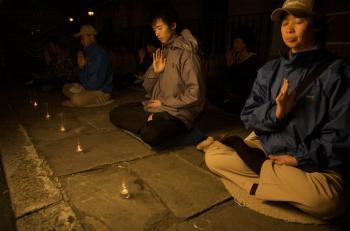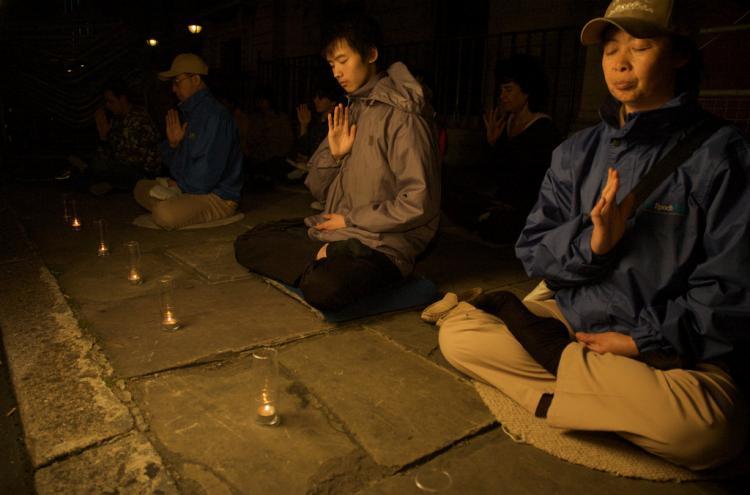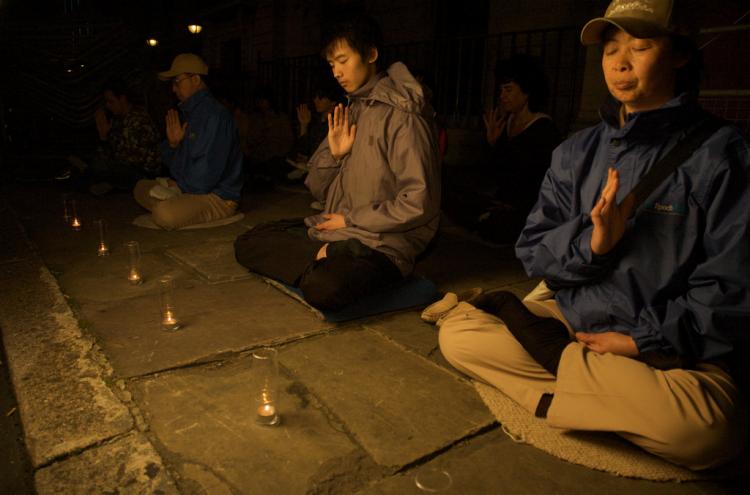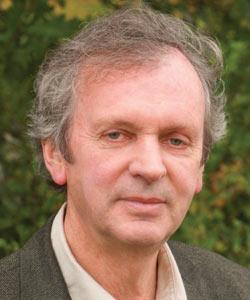LONDON—Around 30 people sat in silent vigil on the pavement opposite the Chinese Embassy in London last Saturday evening, calling for an end to the persecution of the Falun Gong spiritual movement in China.
The event marked the 9th anniversary of the Chinese Communist regime’s banning of Falun Gong on the 20th July 1999. Since then, 3,160 people are know to have died although the true number of death is thought to be much higher.
Falun Gong combines meditation exercises and moral teachings based on the principles of truthfulness, compassion, and forbearance. It was brought to the public in 1992, and an estimated 70-100 million persons in China practised Falun Gong by 1999.
Some of those present vividly remembered the day Falun Gong was banned.
Mrs Zhou, a research assistant, now a refugee in the UK was in Beijing at the time. “A few of us from our practice site went to central Beijing to make an appeal” she said.
“We had heard that in the night of the 19th July, some practitioners were arrested. At that point the government had not made an announcement about banning Falun Gong. In the evening, on the TV, it was broadcast that the government had banned Falun Gong.”
“We went to the Beijing city appeal office but we were arrested there and sent to the Beijing stadium. Quite a few Beijing stadiums had been filled with arrested practitioners. I couldn’t tell how many. At least 10,000 were kept in the stadium we stayed in.”
She was subsequently arrested 3 times, her phone was tapped and she was monitored my the authorities even at her work.
“The 610 office in the research institute talked to me every week and reminded me not to go to Tiananmen Square to make an appeal and not to distribute any material. They also tried to force me to write a statement to denounce Falun Gong. I refused to write it but they forced my husband to write it on my behalf.”
On sensitive dates, where many arrests were taking place, she stayed away from home for fear of being arrested. She said, “Since 1999 I only spent one Chinese New Year day at home and even on that day I was arrested. About 30 practitioners I know were forced to leave home to live in hiding to avoid being sent to the brainwashing centre and to avoid being arrested.”
Belle Cheng, now a graphic designer in London, was still at school when Falun Gong was banned. After 1999 she lived under virtual house arrest at home and at boarding school, constantly monitored by her parents and teachers but she still didn’t give up her belief.
“I was still a teenager at that time. I didn’t know what to do. I didn’t know why my parents helped them to ask me to give up my belief. My teachers went to my home in the summer holidays and asked my parents to force me to give up my belief. They wrote something and forced me to sign it. The pressure was unimaginable. “
Among the western Falun Gong practitioners present was Edward Stephen, 30, a PA from London. He said “This is a massive issue for the whole world because the persecution continues in silence to this day.”






